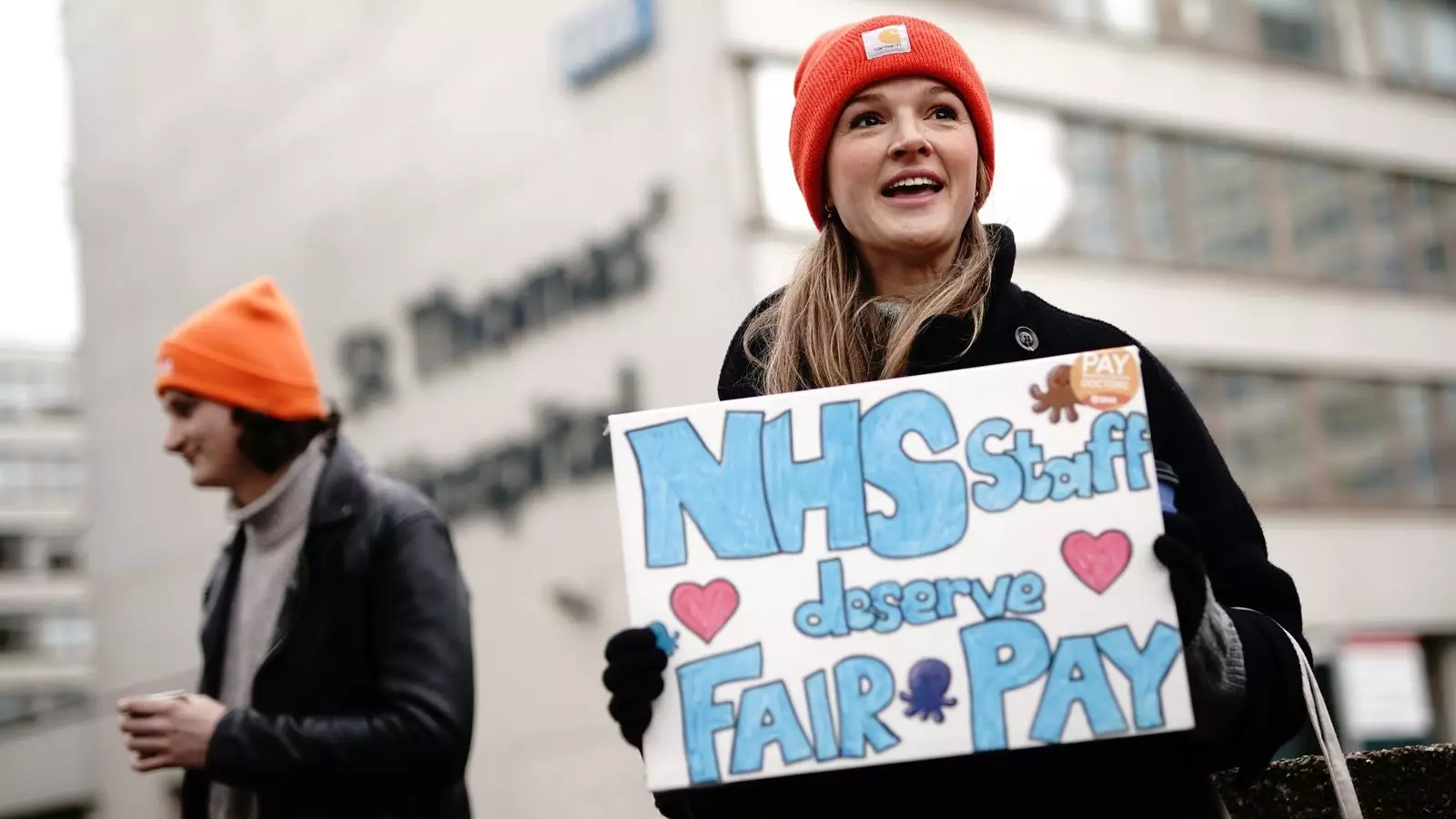The UK Government has recently offered junior doctors in England a substantial 22.3% pay rise in an effort to bring an end to the ongoing strike action. The British Medical Association’s (BMA) junior doctors committee will be presenting this offer to its members for approval. The proposal, according to The Times, involves a pay increase spread over two years. It includes an 8.1% to 10.3% raise for the first year along with a backdated 4.05% increment for 2023-24. Additionally, there is a 6% pay rise scheduled for 2024-2025, complemented by a £1,000 payment, equivalent to a 7% to 9% increase.
Chancellor Rachel Reeves is set to announce these pay rises during a significant speech addressing spending cuts to address what she described as a £20bn financial gap inherited from the previous administration. The government has acknowledged the economic situation and the challenges it poses, emphasizing its commitment to resolving the issue to halt the strikes. The recent proposal represents a move towards finding a long-term solution to the ongoing dispute with junior doctors.
The strike action by junior doctors in England has had significant implications for patients and the healthcare system, leading to the cancellation of operations and appointments. The estimated cost of these disruptions over the past year and a half amounts to a staggering £3bn for the NHS. The impact of the strikes on waiting lists and patient care has been substantial, underscoring the urgency of reaching a resolution and ensuring the uninterrupted delivery of healthcare services.
Vicky Pryce, chief economic adviser to the Centre for Economic and Business Research, has weighed in on the government’s proposed pay rise for junior doctors. She believes that the 22.3% increment is financially feasible for the government, especially when compared to the 35% raise initially requested by the doctors. Pryce points out that the cost of the strikes and the resulting appointment cancellations has already amounted to £3bn, making the proposed pay increase a more viable option in the long run. This perspective sheds light on the economic considerations behind the government’s decision-making process.
In the past, junior doctors have engaged in strikes and negotiations with the government over pay increases and working conditions. Talks between the BMA and the Conservative government regarding a 3% pay rise on top of an average 9% increase for 2022-23 fell through last year. The current proposal marks a new chapter in the ongoing discussions aimed at addressing the concerns of junior doctors and reaching a mutually agreeable settlement. The history of negotiations provides context for the current situation and highlights the importance of finding sustainable solutions to prevent future disputes.
The government’s proposal for a 22.3% pay rise for junior doctors in England represents a significant development in the effort to resolve the ongoing strike action. The economic considerations, the impact of the strikes, and the history of negotiations all play a crucial role in shaping the current situation. By addressing these various factors and working towards a mutually beneficial agreement, the government aims to bring an end to the disruptions in healthcare services and ensure the well-being of both patients and medical professionals.


Leave a Reply